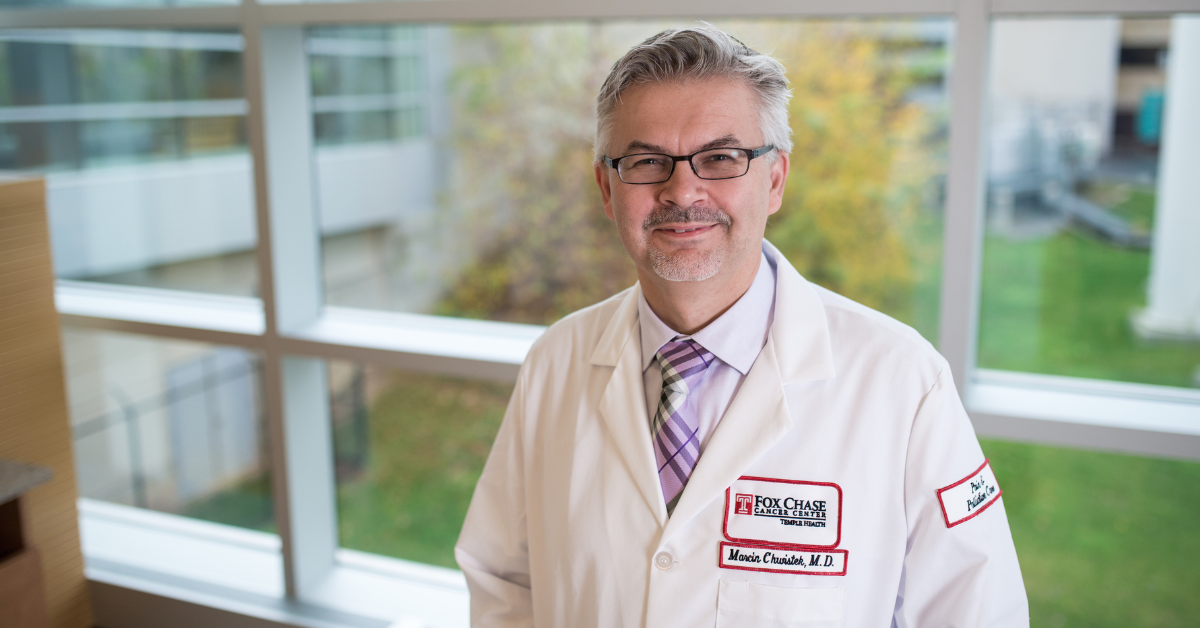
Marcin Chwistek, MD, FAAHPM, Director of Fox Chase Cancer Center’s Supportive Oncology and Palliative Care Program, has completed Harvard Medical School’s prestigious Safety, Quality, Informatics, and Leadership (SQIL) program, where his capstone project on Goal Concordant Care was recognized as one of the top three among nearly 100 participants from around the world.
The year-long program brings together healthcare leaders to advance expertise in system-level improvement. Chwistek’s project focused on expanding Goal Concordant Care in oncology: an approach that ensures cancer treatment aligns with patients’ values and preferences throughout their care journey.
What surprised Chwistek most was the enthusiastic reception his project received from colleagues across diverse medical specialties. “A cardiologist caring for patients with heart failure, an ICU physician managing end-of-life decisions—they saw how Goal Concordant Care could transform their practice too,” he said. “I was reinvigorated by the entire experience.”
The Emerging Practice of Goal Concordant Care
Chwistek’s involvement in Goal Concordant Care began four years ago through a multi-institutional project with the Alliance of Dedicated Cancer Centers (ADCC). Goal Concordant Care is an approach to medical decision-making that ensures patients’ treatment plans align with their personal values, wishes, and life priorities. While it may sound intuitive, research consistently shows a troubling gap: many patients with advanced cancer do not receive care that reflects what matters most to them.
“There was a valid concern that sometimes these conversations simply happen too late in the course of treatment,” Chwistek said.
Working with colleagues across all ten ADCC member institutions, Chwistek has helped develop a comprehensive framework that provides a structured approach to understanding and honoring patient priorities throughout treatment. The collaboration has resulted in commentary and position papers published in The Oncologist and the Journal of Pain and Symptom Management.
Recognition at Harvard
The SQIL program is designed to help healthcare leaders address system-level challenges like the ones presented by Chwistek and his ADCC colleagues. Participants learn strategies to improve safety, quality, and patient outcomes, then apply them in a capstone project.
The honor was the result of a rigorous process. All participants submitted written projects, with faculty selecting ten finalists for oral presentation. Of those, three—including Chwistek’s—were chosen for special recognition. Chwistek’s project stood out not only for its relevance to oncology but also for its broader applicability across many fields of medicine.
“It felt important that people outside of oncology recognized the value in what we have been working on for Goal Concordant Care,” Chwistek reflected. “I think we all learned from each other in the process, and I look forward to bringing some of their insights back to Fox Chase and my partners across ADCC.”
The recognition confirms what Chwistek and his colleagues have long believed: Goal Concordant Care represents not just an oncology innovation, but a fundamental approach to patient-centered medicine with applications across healthcare specialties.